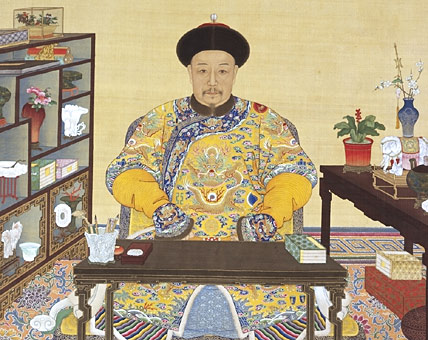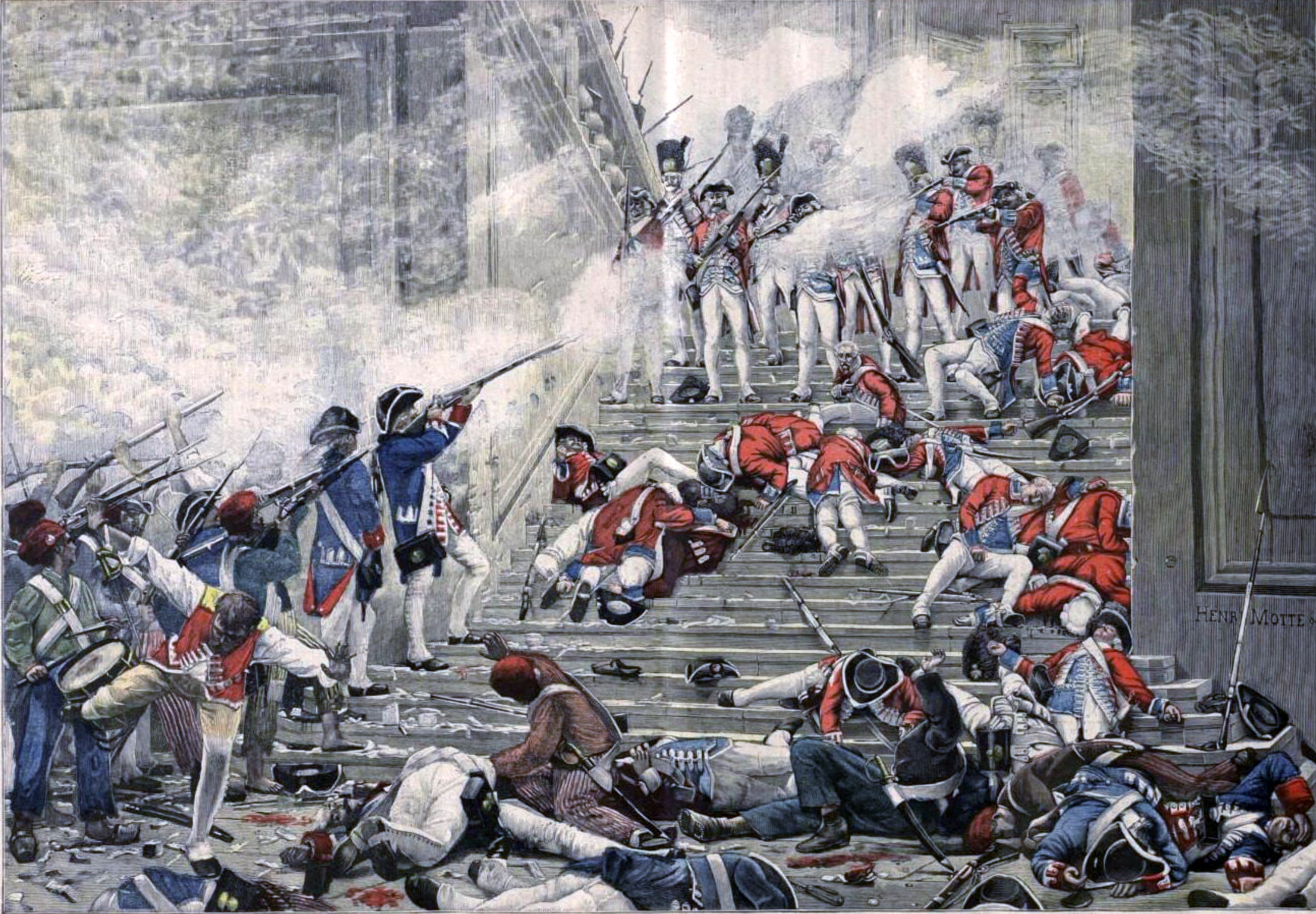|
Empress Xiaoshencheng
Empress Xiaoshencheng (7 May 1792 – 16 June 1833), of the Manchu Bordered Yellow Banner Tunggiya clan, was a posthumous name bestowed on the wife and first empress consort of Mianning, the Daoguang Emperor. She was empress consort of Qing from 1822 until her death in 1833. Life Family background Empress Xiaoshencheng's personal name was not recorded in history. * Father: Sumingga (), served as the Magistrate of Yong'an from 1771 to 1772 and the Magistrate of Xin'an from 1776 to 1777, and held the title of a first class duke () Qianlong era The future Empress Xiaoshencheng was born on the 17th day of the fifth lunar month in the 57th year of the reign of the Qianlong Emperor, which translates to 5 July 1792 in the Gregorian calendar. Jiaqing era On 2 February 1809, Lady Tunggiya married Minning, the second son of the Jiaqing Emperor, and became his second primary consort. On 29 July 1813, she gave birth to his first daughter, Princess Duanmin of the First Rank, who would ... [...More Info...] [...Related Items...] OR: [Wikipedia] [Google] [Baidu] |
List Of Consorts Of Rulers Of China
The following is a list of empresses and queens consort of China. China has periodically been divided into kingdoms as well as united under empires, resulting in consorts titled both queen and empress. The empress title could also be given posthumously. Empresses and queens consort The title of empress consort (, ''húanghòu'') could also be given posthumously. The posthumous empresses are listed separately by the year they were given the title. Zhou dynasty Western Han dynasty Xin dynasty Eastern Han dynasty * AD 26–41: Guo Shengtong * 41–57: Empress Yin Lihua * 60–75: Empress Ma (Han dynasty), Empress Ma * 78–88: Empress Zhangde, Empress Dou * 96–102: Empress Yin (He), Empress Yin * 102–106: Empress Deng Sui * 108–125: Empress Yan Ji * 132–144: Empress Liang Na * 147–159: Empress Liang Nüying * 159–165: Empress Deng Mengnü * 165–168: Empress Dou Miao * 171–178: Empress Song (Han dynasty), Empress Song * 180–189: Empress He (Han dynasty), Emp ... [...More Info...] [...Related Items...] OR: [Wikipedia] [Google] [Baidu] |
Jiaqing Emperor
The Jiaqing Emperor (13 November 1760 – 2 September 1820), also known by his temple name Emperor Renzong of Qing, personal name Yongyan, was the sixth emperor of the Qing dynasty and the fifth Qing emperor to rule over China proper. He was the 15th son of the Qianlong Emperor. During his reign, he prosecuted Heshen, the corrupt favorite of his father and attempted to restore order within the empire while curbing the smuggling of opium into China. Assessments of his reign are mixed, either seen as the "beginning of the end" of the Qing dynasty, or as a period of moderate reform that presaged the intellectual movements of the 1860s. Early years Yongyan was born in the Old Summer Palace, 8 km (5 mi) northwest of the walls of Beijing. His personal name, "Yongyan" (永琰), was later changed to "Yongyan" (顒琰) when he became the emperor. The Chinese character for ''yong'' in his name was changed from the more common 永 to the less common 顒. This novelty was ... [...More Info...] [...Related Items...] OR: [Wikipedia] [Google] [Baidu] |
Manchu Nobility
The Manchus (; ) are a Tungusic East Asian ethnic group native to Manchuria in Northeast Asia. They are an officially recognized ethnic minority in China and the people from whom Manchuria derives its name. The Later Jin (1616–1636) and Qing (1636–1912) dynasties of China were established and ruled by the Manchus, who are descended from the Jurchen people who earlier established the Jin dynasty (1115–1234), Jin dynasty (1115–1234) in northern China. Manchus form the largest branch of the Tungusic peoples and are distributed throughout China, forming the fourth largest ethnic group in the country. They are found in 31 Chinese provincial regions. Among them, Liaoning has the largest population and Hebei, Heilongjiang, Jilin, Inner Mongolia and Beijing have over 100,000 Manchu residents. About half of the population live in Liaoning and one-fifth in Hebei. There are a number of Manchu autonomous counties in China, such as Xinbin Manchu Autonomous County, Xinbin, Xiuya ... [...More Info...] [...Related Items...] OR: [Wikipedia] [Google] [Baidu] |
Qing Dynasty Empresses
The Qing dynasty ( ), officially the Great Qing, was a Manchu-led Dynasties of China, imperial dynasty of China and an early modern empire in East Asia. The last imperial dynasty in Chinese history, the Qing dynasty was preceded by the Ming dynasty and succeeded by the Republic of China (1912–1949), Republic of China. At its height of power, the empire stretched from the Sea of Japan in the east to the Pamir Mountains in the west, and from the Mongolian Plateau in the north to the South China Sea in the south. Originally emerging from the Later Jin (1616–1636), Later Jin dynasty founded in 1616 and proclaimed in Shenyang in 1636, the dynasty seized control of the Ming capital Beijing and North China in 1644, traditionally considered the start of the dynasty's rule. The dynasty lasted until the Xinhai Revolution of October 1911 led to the abdication of the last emperor in February 1912. The multi-ethnic Qing dynasty Legacy of the Qing dynasty, assembled the territoria ... [...More Info...] [...Related Items...] OR: [Wikipedia] [Google] [Baidu] |
1833 Deaths
Events January–March * January 3 – The United Kingdom reasserts British sovereignty over the Falkland Islands in the South Atlantic Ocean. * February 6 (January 25 on the Greek calendar) – Prince Otto Friedrich Ludwig of Bavaria arrives at the port of Nafplio to assume the title King Othon the First of Greece * February 16 – The United States Supreme Court hands down its landmark decision of Barron v. Mayor and City Council of Baltimore. April–June * April 1 – General Antonio López de Santa Anna is elected President of Mexico by the legislatures of 16 of the 18 Mexican states. During his frequent absences from office to fight on the battlefield, Santa Anna turns the duties of government over to his vice president, Valentín Gómez Farías. * April 18 – Over 300 delegates from England, Scotland, Wales and Ireland travel to the office of the Prime Minister, the Earl Grey, to call for the immediate abolition of slavery throughout the British Empire. * Ma ... [...More Info...] [...Related Items...] OR: [Wikipedia] [Google] [Baidu] |
1792 Births
Events January–March * January 9 – The Treaty of Jassy ends the Russian Empire's war with the Ottoman Empire over Crimea. * January 25 – The London Corresponding Society is founded. * February 18 – Thomas Holcroft produces the comedy ''The Road to Ruin (play), The Road to Ruin'' in London. * February 20 ** The Postal Service Act, establishing the United States Postal Service, United States Post Office Department, is signed by President George Washington.''Harper's Encyclopaedia of United States History from 458 A. D. to 1909'', ed. by Benson John Lossing and, Woodrow Wilson (Harper & Brothers, 1910) p169 ** Parliament House, Dublin catches fire during a legislative session. "Although in imminent danger of the roof falling in," it is noted later, "the House did not adjourn until a proper motion had been put and carried in the affirmative.""Fires, Great", in ''The Insurance Cyclopeadia: Being an Historical Treasury of Events and Circumstances Connect ... [...More Info...] [...Related Items...] OR: [Wikipedia] [Google] [Baidu] |
Draft History Of Qing
The ''Draft History of Qing'' () is a draft of the official history of the Qing dynasty compiled and written by a team of over 100 historians led by Zhao Erxun who were hired by the Beiyang government of the Republic of China. The draft was published in 1928, but the Chinese Civil War caused a lack of funding for the project and it was put to an end in 1930. The two sides of the Chinese civil war, the People's Republic of China and Republic of China have attempted to complete it. History The Qing imperial court had previously established a Bureau of State Historiography that pre-compiled its own dynastic history. The massive book was started in 1914, and the rough copy was finished in about 1927. 1,100 copies of the book were published. The Beiyang government moved 400 of the original draft into the northern provinces, where it re-edited the content twice, thus creating three different versions of the book. It was banned by the Nationalist Government in 1930. The ban was lift ... [...More Info...] [...Related Items...] OR: [Wikipedia] [Google] [Baidu] |
Royal And Noble Ranks Of The Qing Dynasty
The Qing dynasty (1644–1912) of China developed a complicated peerage system for royal and noble ranks. Rule of inheritance In principle, titles were downgraded one grade for each generation of inheritance. * Direct imperial princes with the ''Eight Privileges'' were downgraded for four generations, after which the title can be inherited without further downgrades. * Direct imperial princes without the ''Eight Privileges'' were downgraded until the rank of ''feng'en jiangjun'', which then became perpetual. * Cadet line imperial princes and lords were downgraded until they reached ''feng'en jiangjun'', which could be further inherited three times before the title expired completely. * For non-imperial peers, the title could be downgraded to ''en jiwei'' before becoming perpetually heritable. Occasionally, a peer could be granted the privilege of ''shixi wangti'' ( zh, t=世襲罔替, p=shìxí wǎngtì, labels=no; "perpetual heritability"), which allowed the title to be p ... [...More Info...] [...Related Items...] OR: [Wikipedia] [Google] [Baidu] |
Ranks Of Imperial Consorts In China
The ranks of imperial consorts have varied over the course of Chinese history but remained important throughout owing to its prominence in the management of the inner court and in imperial succession, which ranked heirs according to the prominence of their mothers in addition to their birth order. Regardless of the age, however, it is common in English translation to simplify this hierarchy into the three ranks of empress, consorts, and concubines. It is also common to use the term "harem", an Arabic loan word used in recent times to refer to imperial women's forbidden quarters in many countries. In later Chinese dynasties, these quarters were known as the inner palace (內宮; ''nèigōng'') or the rear palace (後宮; ''hòugōng''). In Chinese, the system is called the "rear palace system" (後宮制度; ''hòugōng zhìdù''). No matter the dynasty, the empress (皇后; ''huánghòu'') held the highest rank and was the legal wife of the emperor, as well as the chief of the im ... [...More Info...] [...Related Items...] OR: [Wikipedia] [Google] [Baidu] |
Curse Of The Royal Harem
''Curse of the Royal Harem'' (Traditional Chinese: 萬凰之王; literally "The King Among Ten Thousand Phoenixes") is a 2011 Hong Kong period drama produced by TVB under executive producer Chong Wai-kin. The 45-minute episodes aired from 31 October to 4 December 2011, in a total of 27 episodes in Hong Kong and 31 episodes for the overseas audience. Its stars Jessica Hsuan, Myolie Wu, Sunny Chan, , Nancy Wu and Joel Chan. It is one of three grand TVB productions used to celebrate the channel's 44th anniversary, the other two being ''Super Snoops'' and ''Forensic Heroes III''. The drama is Hong Kong's fourth highest-rating serial drama of 2011. Summary Set in the mid-1800s Qing Dynasty, ''Curse of the Royal Harem'' is loosely based on the reign of the Daoguang Emperor of China and tells of the drama and romantic intrigue in the court's Manchurian royal harem. Yee-lan, the Consort Tsuen (Jessica Hsuan) was the new wife of Emperor Do-kwong (Sunny Chan)'s elder brother. Howe ... [...More Info...] [...Related Items...] OR: [Wikipedia] [Google] [Baidu] |
Myolie Wu
Myolie Wu Hang-yee (born 6 November 1979) is a Hong Kong actress and singer. She is previously managed by Hong Kong TVB television station and Neway Star. In 2011, she won Best Actress for her role in '' Curse of the Royal Harem'', Most Favourite TV Female Character for her role in '' Ghetto Justice'' and also "Extraordinary Elegant Actress" at the TVB Anniversary Awards 2011, making her the first ever Triple TV Queen of the year. Early years In her schooling days, Myolie Wu received high school education in Boarding School at Methodist College Belfast, Northern Ireland. She later returned to Hong Kong and attended the Hong Kong University of Science and Technology, majoring in Biochemistry. During her first year in university, Wu took part the Miss Hong Kong pageant in 1999 and clinched second runner-up. Shortly afterward, she signed on to TVB as a full-time contracted artiste and withdrew from school. Career Acting In her early years, Myolie Wu started out as supporting ch ... [...More Info...] [...Related Items...] OR: [Wikipedia] [Google] [Baidu] |
The Rise And Fall Of Qing Dynasty
''The Rise and Fall of Qing Dynasty'' ( Chinese: 滿清十三皇朝) is a long-running four part television series about the history of the Qing dynasty. The series was produced by Hong Kong's ATV and was aired on ATV Home from September 1987 to May 1992.Yesasia.com.Yesasia.com" ''滿清十三皇朝.'' Retrieved on 2010-12-27. Four seasons Season 1 * Title: 滿清十三皇朝; literally: ''The Thirteen Manchu Qing Dynasties'' * Covers the reigns of Nurhaci, Hong Taiji, Shunzhi Emperor and Kangxi Emperor * 68 episodes * Airing period: September 7 - December 11, 1987 Season 2 * Title: 滿清十三皇朝2; literally: ''The Thirteen Manchu Qing Dynasties 2'' * Covers the reigns of the Yongzheng Emperor, Qianlong Emperor, Jiaqing Emperor and Daoguang Emperor * 50 episodes * Airing period: June 29 - September 7, 1988 Season 3 * Title: 血染紫禁城; ''Bloodshed Over the Forbidden Palace'' * Covers the reigns of the Xianfeng Emperor and Tongzhi Emperor * 20 episodes * Airing peri ... [...More Info...] [...Related Items...] OR: [Wikipedia] [Google] [Baidu] |





